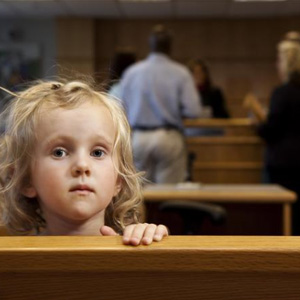Get Your Questions Answered - Call Me For Your Free, 20 Minute Phone Consultation: (732) 365-3299

Child custody is often one of the most complicated issues in the divorce process. The divorce process is quite lengthy and daunting for the parents, but it can also have a detrimental impact on the children. If the parents cannot reach a mutual agreement amongst themselves in relation to child custody, the issue is then handled by the Family Division of the Superior Court of New Jersey in whatever county they reside in. Child custody is composed of Legal Custody and Physical/Residential Custody. Legal custody is when the parent/s has the responsibility of making decisions concerning the child’s health, education and welfare. Typically, parents share what is known as Joint Legal Custody.
Physical/Residential Custody deals with where the child resides. There is a lengthy list of factors under N.J.S.A. 9:2-4c that the Courts must abide by and consider when handling a child custody case and they are as follows:
In addition to the factors under N.J.S.A. 9:2-4c above, the Court must also determine the best interests of the children. To help base their decision, the Court considers several factors and they are:
In New Jersey, there are three (3) child custody categories: Sole Custody, Joint Legal Custody and True Shared Physical Custody. Sole Custody is very rare, where either the Husband or Wife is awarded legal and residential custody of the children. Whereas Joint Legal Custody, both parents have a role in any and all major decisions for their children. One parent is designated Parent of Primary Residence while the other is the Parent of Alternate Residence and a parenting plan is drafted to ensure both parents have time with their children. True/Shared Physical Custody is where both parents have equal time with the children. In this case, the schedules and flexibilities of both parents must be able to accommodate this form of child custody.
If you or someone you know is going through a Child Custody battle, contact the attorney’s at The Law Office of Eric B. Hannum Esq., LLC, to discuss the specifics in great detail.

The Law Office of Eric B. Hannum Esq., LLC prides itself
on the experience and the ability to handle a wide
range of legal issues - Call Us Now - (732) 365-3299